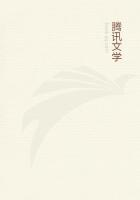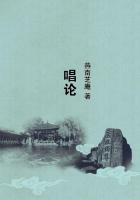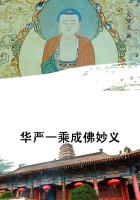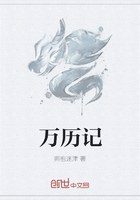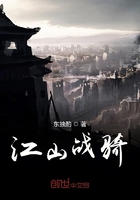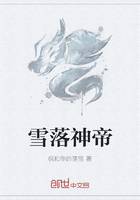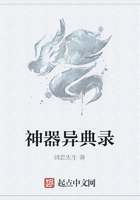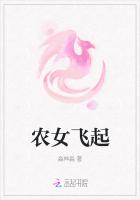WHILE the world that thought itself frivolous, and submitted meekly to hearing itself decried as vain, fluttered through the Paris Exposition, jogging the futilities of St. Gaudens, Rodin, and Besnard, the world that thought itself serious, and showed other infallible marks of coming mental paroxy**, was engaged in weird doings at Peking and elsewhere such as startled even itself. Of all branches of education, the science of gauging people and events by their relative importance defies study most insolently. For three or four generations, society has united in withering with contempt and opprobrium the shameless futility of Mme. de Pompadour and Mme. du Barry; yet, if one bid at an auction for some object that had been approved by the taste of either lady, one quickly found that it were better to buy half-a-dozen Napoleons or Frederics, or Maria Theresas, or all the philosophy and science of their time, than to bid for a cane-bottomed chair that either of these two ladies had adorned. The same thing might be said, in a different sense, of Voltaire; while, as every one knows, the money-value of any hand-stroke of Watteau or Hogarth, Nattier or Sir Joshua, is out of all proportion to the importance of the men. Society seemed to delight in talking with solemn conviction about serious values, and in paying fantastic prices for nothing but the most futile. The drama acted at Peking, in the summer of 1900, was, in the eyes of a student, the most serious that could be offered for his study, since it brought him suddenly to the inevitable struggle for the control of China, which, in his view, must decide the control of the world; yet, as a money-value, the fall of China was chiefly studied in Paris and London as a calamity to Chinese porcelain. The value of a Ming vase was more serious than universal war.
The drama of the Legations interested the public much as though it were a novel of Alexandre Dumas, but the bearing of the drama on future history offered an interest vastly greater. Adams knew no more about it than though he were the best-informed statesman in Europe. Like them all, he took for granted that the Legations were massacred, and that John Hay, who alone championed China's "administrative entity," would be massacred too, since he must henceforth look on, in impotence, while Russia and Germany dismembered China, and shut up America at home. Nine statesmen out of ten, in Europe, accepted this result in advance, seeing no way to prevent it. Adams saw none, and laughed at Hay for his helplessness.
When Hay suddenly ignored European leadership, took the lead himself, rescued the Legations and saved China, Adams looked on, as incredulous as Europe, though not quite so stupid, since, on that branch of education, he knew enough for his purpose. Nothing so meteoric had ever been done in American diplomacy. On returning to Washington, January 30, 1901, he found most of the world as astonished as himself, but less stupid than usual. For a moment, indeed, the world had been struck dumb at seeing Hay put Europe aside and set the Washington Government at the head of civilization so quietly that civilization submitted, by mere instinct of docility, to receive and obey his orders; but, after the first shock of silence, society felt the force of the stroke through its fineness, and burst into almost tumultuous applause. Instantly the diplomacy of the nineteenth century, with all its painful scuffles and struggles, was forgotten, and the American blushed to be told of his submissions in the past. History broke in halves.
Hay was too good an artist not to feel the artistic skill of his own work, and the success reacted on his health, giving him fresh life, for with him as with most men, success was a tonic, and depression a specific poison; but as usual, his troubles nested at home. Success doubles strain.
President McKinley's diplomatic court had become the largest in the world, and the diplomatic relations required far more work than ever before, while the staff of the Department was little more efficient, and the friction in the Senate had become coagulated. Hay took to studying the "Diary" of John Quincy Adams eighty years before, and calculated that the resistance had increased about ten times, as measured by waste of days and increase of effort, although Secretary of State J. Q. Adams thought himself very hardly treated. Hay cheerfully noted that it was killing him, and proved it, for the effort of the afternoon walk became sometimes painful.
For the moment, things were going fairly well, and Hay's unruly team were less fidgety, but Pauncefote still pulled the whole load and turned the dangerous corners safely, while Cassini and Holleben helped the Senate to make what trouble they could, without serious offence, and the Irish, after the genial Celtic nature, obstructed even themselves. The fortunate Irish, thanks to their sympathetic qualities, never made lasting enmities; but the Germans seemed in a fair way to rouse ill-will and even ugly temper in the spirit of politics, which was by no means a part of Hay's plans.
He had as much as he could do to overcome domestic friction, and felt no wish to alienate foreign powers. Yet so much could be said in favor of the foreigners that they commonly knew why they made trouble, and were steady to a motive. Cassini had for years pursued, in Peking as in Washington, a policy of his own, never disguised, and as little in harmony with his chief as with Hay; he made his opposition on fixed lines for notorious objects; but Senators could seldom give a reason for obstruction. In every hundred men, a certain number obstruct by instinct, and try to invent reasons to explain it afterwards. The Senate was no worse than the board of a university; but incorporators as a rule have not made this class of men dictators on purpose to prevent action. In the Senate, a single vote commonly stopped legislation, or, in committee, stifled discussion.

